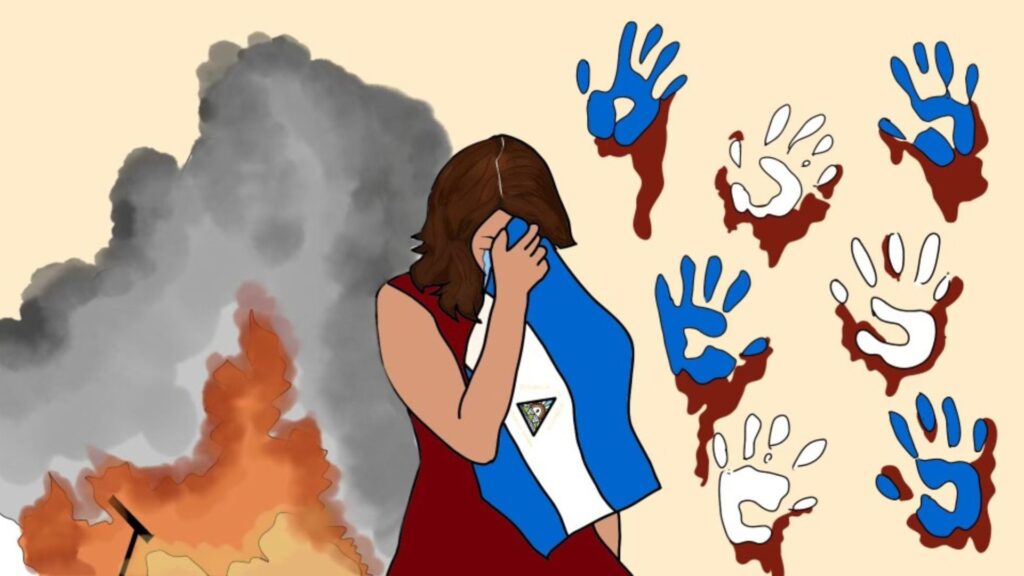A Glimpse Into Nicaragua’s Political Crisis
When I was 11 years old, I was motivated to fight for my homeland in Nicaragua.
In April of 2018, protests erupted against the Nicaraguan government. Political officials failed to stop a nine-day wildfire in the Indio Maíz Biological Reserve that burned approximately 13,500 acres of forest land.
That same month, the government also approved reforms to the country’s social security system aimed at increasing taxes and decreasing retiree benefits.
From the safety of my bedroom, I watched a video of college students being shot by military forces while protesting; they were fighting to get the Ortega-Murillo socialist regime, which has been in power since 2007, out of office.
The government’s oppression grew with every protest. Nicaraguans were kidnapped and imprisoned. Police officers intimidated people in their homes. Media outlets were shut down and any evidence of human rights violations was censored.
One year later, the Inter-American Commission on Human Rights, an organization that advocates for human rights in the Americas, reported that at least 355 people, mostly university students, had died at the hands of police.
The Rotonda of Jean Paul Genie in Managua—a structure made in honor of a 16-year-old boy who was shot in his car for attempting to overtake a military escort—became a memorial for those who had died.
As a child, I should’ve been terrified, but what I felt was indignation. Everyday I asked myself, “should I also go out and fight?”
Although I am no longer in Nicaragua, watching my country suffer from afar pains me. Witnessing the annihilation of justice and democracy in Nicaragua is the hardest thing I will ever go through.
Today, Nicargaua is still facing devastating repercussions from the protests.
Citizens are being persecuted, imprisoned and exiled for having the slightest link to the opposition movement.
Organizations advocating for human rights are being labeled as “terrorists” and are immediately shut down by the government.
Even owning the national flag is considered treason because it’s a symbol of unity and resistance against tyranny. It is now being overshadowed by the flag of the socialist party, Frente Sandinista de Liberación Nacional.
According to La Prensa, an independent Nicaraguan newspaper in exile, as of Sept. 5, the dictatorship has exiled 135 political prisoners to Guatemala without informing their families, but with a clear message—they will never be welcomed back.
Even a prominent figure like Nicaraguan social communicator Sheynnis Palacios, who was crowned Miss Universe 2023, was exiled for participating in the 2018 protests and has not been able to come home.
I’m proud of where I come from. My goal is to one day help my homeland and any other country going through a humanitarian crisis.
Today, I’m unable to hold the Nicaraguan flag without breaking down, but that doesn’t stop me from testifying about the bravery of those who are no longer here.



